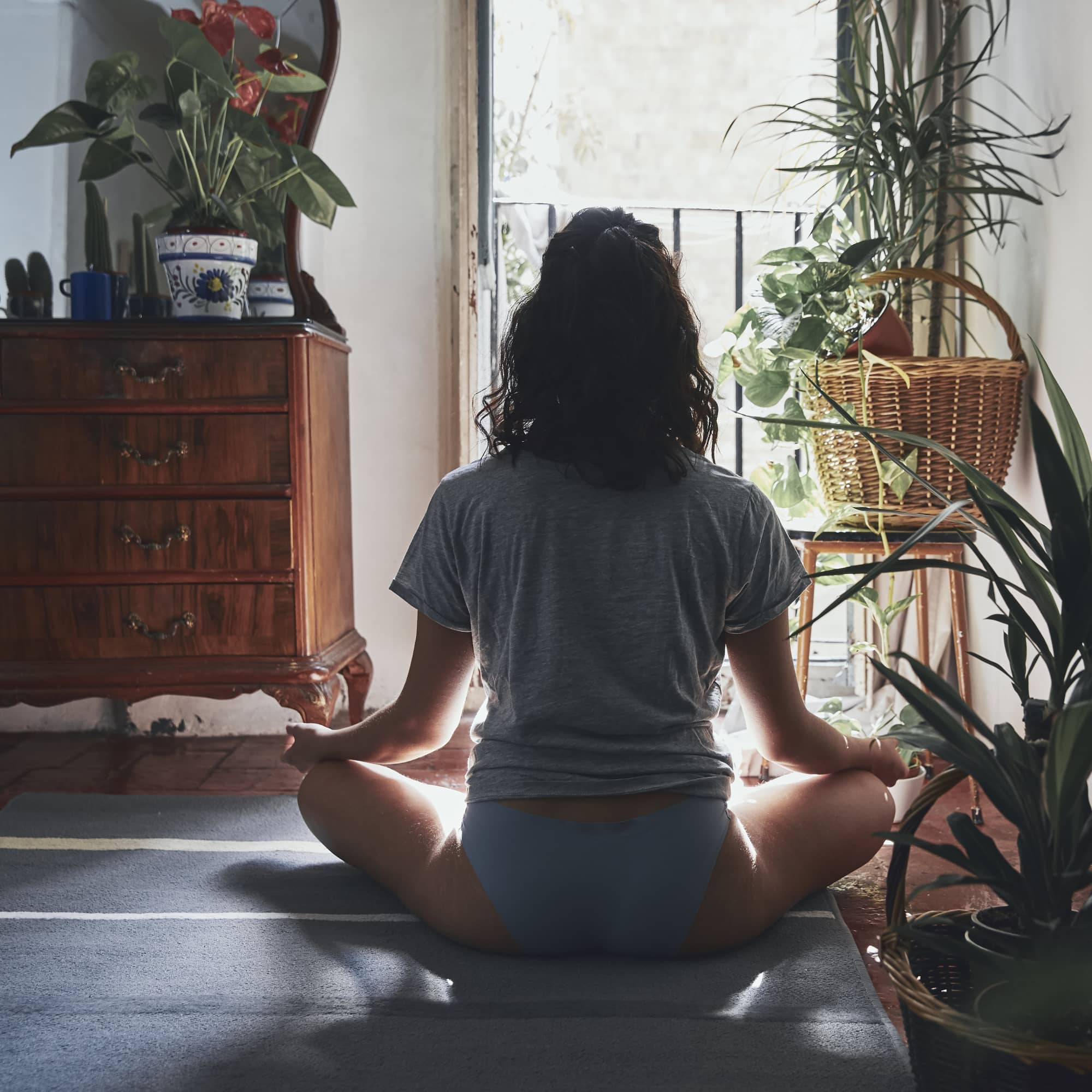
- POPSUGAR Australia
- Fitness
- Feeling Stressed? Read These 5 Self-Care Tips From the Front Line by a Doctor Testing For COVID-19
Feeling Stressed? Read These 5 Self-Care Tips From the Front Line by a Doctor Testing For COVID-19

We are halfway through 2020, and none of us is exactly where we imagined we would be. Whether it was our goals, plans, or even our routines, we have all had to change course due to COVID-19.
I’m a pediatric ophthalmologist in Brunei who has unexpectedly spent my last few months in a gym – not to exercise, but to work on the front lines in a converted COVID-19 testing center. The day COVID-19 broke out in March, I had just performed cataract surgery on a 1-year-old baby. The very next day, I was redeployed and swabbing high-suspect COVID-19 cases.
I suspect you may be in a similar situation in that, very quickly, you have had to adapt to an unconventional workplace. Instead of your office, perhaps you’ve been working in your garage, or crammed in some small corner of your apartment. But sometimes, upending the where creates the right moment to refocus on the why.
What is your why? Here is mine: first and foremost, I am a physician, and everything I do is to be in service of others. Given my specialty, I’m typically addressing issues affecting eyesight, either in my own clinic or through my efforts to train eye-care teams around the world. In fact, when the pandemic hit, I was a few weeks away from being in Lusaka, Zambia, as a volunteer on board Orbis International’s Flying Eye Hospital, which is a teaching hospital on a plane that takes ophthalmic training to areas with the greatest need.
Related: I’m a Physician’s Wife, and This Is the Most Important Thing You Can Do to Support Doctors
Like me, many of my colleagues at the testing center are specialists who are used to a very different day-to-day: orthopedic surgeons, urologists, psychiatrists. But we all went to medical school – we can all do a swab and take a medical history. It is what we need to do to be of greatest service now.
In global health, resilience, flexibility, and creativity are paramount. As doctors, we must be able to adapt and improvise as we work for the greater good. This year, that lesson applies to all of us. We are all figuring out what we need to do to stay well – and help keep others well – not only physically but mentally and emotionally, too.
There is no one set of rules on how to cope. However, there are some approaches to self-care that I have found helpful during this time. I hope they can support not just other essential workers but everyone who is adjusting to our shared new reality.
How to Practice Self-Care During a Pandemic
Schedule time for rest and reflection. There’s a time for setting goals and ticking off the to-do list, and there’s a time to slow down and rest. Honor all those times. I’ve been especially conscious and mindful not to overburden myself during this time. If you’re exhausted, rest. Personally, I set aside some time each day to meditate. I usually meditate first thing in the morning for 10-15 minutes after waking up – it’s my lifeline! If I have any hiccups during the day, I’ll perform some deep breathing exercises for five minutes, which usually does the trick.
Allow space for your feelings. Now truly isn’t the time to keep feelings buried. There are no right or wrong feelings. If you’re feeling sad, give yourself permission to cry and let it out. I allow myself to feel and process whatever emotions arise, be it anguish, disappointment, sadness, or anger.
Take it day-by-day. If you’ve taken on too much, be honest about it, and see what things can wait. We’re all doing the best we can under very strange, difficult conditions. Truly, no lecture or course in our medical training could have prepared us for this.
Limit information intake. You might be surprised to see this one from a doctor. While it is crucial to stay informed, we must set boundaries around our intake. When the pandemic first hit, I think many of us instinctively raced to consume everything in the media that had to do with COVID-19. I found that this information overload started to have detrimental effects on my emotional health, so I limit myself to a daily 10-minute update. I also make it a point not to read the news first thing in the morning.
Related: I Have Bipolar 2, and This Is How I’m Managing My Mental Health During the Pandemic in NYC
Lean on a supportive social network. People ask how I “balance it all,” and the reality is, I don’t. My balance has been made possible by family members, friends, and loved ones who have provided emotional support. I’m also grateful that I’ve connected with dozens of amazing, inspiring individuals on social media. We’ve supported one another throughout this, and when you surround yourself with positive company, it makes a huge difference.
Much of what we’re all being called to do, whether that’s to socially distance, practice good hygiene, or wear a mask in public, is rightfully about taking care of one another. Your willingness to be adaptable during this time matters and is saving lives. Each of us must also give ourselves the space to recognize that adapting to a new normal has a psychological toll. By making time for true self-care and reflection, we increase our resilience and capacity to hold a nurturing space for ourselves and others, so that we can face all that’s ahead, together.

